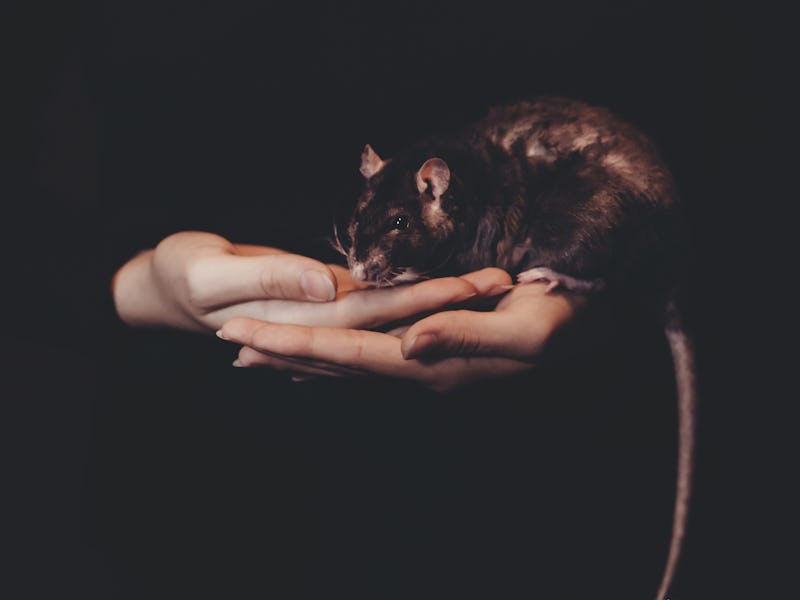U.S. Woman Dies From Hantavirus, a Flu-Like Disease Spread by Rodents
The disease has a 38 percent mortality rate.

A 27-year-old woman died last week as a result of complications stemming from a rare rodent-borne infection. While doctors initially thought that Kiley Lane of New Mexico was another victim of a potent flu season, she was actually suffering from a severe case of hantavirus pulmonary syndrome (HPS), a virus primarily carried by rodents.
HPS is caused by the hantavirus bug, which is carried by four rodent species in the United States: the cotton rat, the deer mouse, the rice rat, and the white-footed mouse. These critters transmit the virus to humans through their droppings, saliva, and urine. If contaminated rodent poop gets stirred up, Hantavirus particles can get into the air, where people can breathe them in and become infected.
Despite widespread rodent populations across the country, HPS is, fortunately, an uncommon disease. The CDC started tracking diagnoses in 1993 after an outbreak in the “Four Corners” region of the southwestern United States, and only 728 cases had been reported by January 2017.
HPS can be easy to overlook because its early symptoms are very similar to the flu. Infected patients suffer from fatigue, fever, and muscle aches often accompanied by headaches, dizziness and gastrointestinal problems in the weeks following exposure. About a week after the initial symptoms subsided, the second phase of the disease sets in, and patients experience severe coughing and shortness of breath as the lungs fill with fluid. In the later stages of HPS, the lungs are severely damaged, resulting in a fatality rate of about 38 percent.
For Lane, the flu-like symptoms lasted almost a month before she was officially diagnosed with HPS.
There is currently no cure for the illness, but an early diagnosis can help doctors mitigate harm. Patients with confirmed HPS are treated in a hospital’s intensive care unit, where they can be intubated and receive oxygen therapy to minimize respiratory problems.
Rodents have always been a main carrier for disease, even taking into account research absolving rats of the Black Plague. A recent study found that house mice in New York City are spreading antibiotic-resistant bacteria, which could portend an epidemic of so-called “superbugs” that are unaffected by drugs.